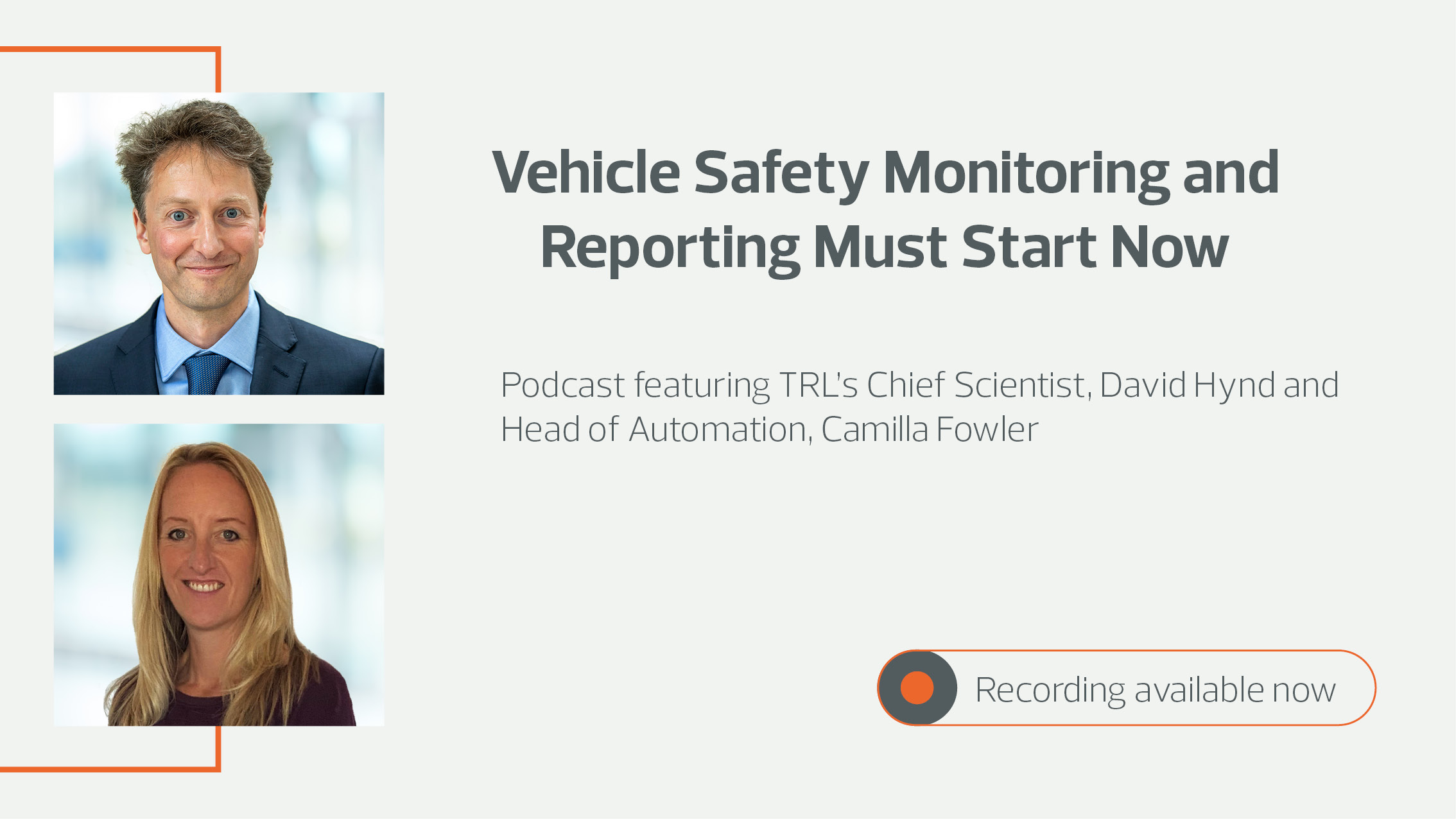
TRL calls for proactive approach to vehicle safety monitoring and reporting to start now
Our podcast discussion addresses the way automated technologies enable collection of valuable new data to assist with achieving road safety objectives; TRL specialists Dr David Hynd and Camilla Fowler agree that a new framework for investigating collisions is essential to underpin targets for Vision Zero in the UK.
Published on 14 December 2021
Historically, road safety has been a reactive activity. TRL now proposes a more automation-focused approach: instead of waiting for collisions to happen, leverage the huge amount of data generated by automated vehicles to analyse the far greater number of safety relevant non-collision events that occur and introduce learnings that will prevent future collisions before they happen. Investigating and understanding the causes of accidents on a much wider scale than what is currently being done will give researchers a much more in depth understanding of why an accident happens. This will enable measures to be proactively introduced to combat the collision risk and therefore help achieve the long-terms goal of Vision Zero.
"A road collision investigation framework in the future should include both collision investigation and safety monitoring, where insights and evidence from both feed into each other. This would help define what CAVs are evaluated against, what constitutes desirable and undesirable behaviours, and what precisely we should be monitoring in real-time—this will help us understand which human behaviours and which automated systems aid in avoiding collisions and how we can improve them” says Camilla Fowler, Head of Automated Transport at TRL.
"There's a benefit in learning from the findings of other teams and agencies, both in the UK and internationally" adds David Hynd, Chief Scientist for Safety and Investigations at TRL. "We want to make sure that we maintain and encourage the open sharing of data across every channel to build the biggest pool of data possible. We know that change within the vehicle fleet takes a long time (decades sometimes), meaning we must act now to initiate positive changes for the future".
If the podcast does not automatically play in this window, use this link to listen to TRL’s Camilla Fowler and David Hynd discuss how we can become proactive in reducing road collisions by learning from the increased data being provided by automated systems.
